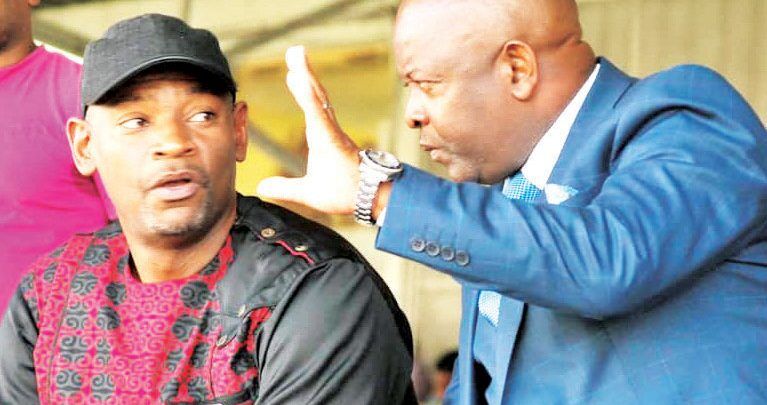
By Lawyer David Kanyenda
Earlier this week, Sulom leadership confirmed a resolution by their executive committee to boycott the nomination of candidates for FAM executive committee (exco) elections.
Sulom neither provided the rationale for their unprecedented resolution nor did they cite any provisions in the regulatory framework sanctioning their conduct.

In the absence of clear justificatory aspects, speculation is naturally rife as to the operative factors that compelled Sulom to shirk its statutory duties.
Be that as it may, a more fundamental question relates to whether the FAM Statutes permit Sulom or indeed any affiliate to refuse to nominate candidates in the forthcoming electoral cycle.
Sulom is precluded from asserting its own Statutes and/or regulations to validate its proposed electoral abstinence.
Therefore, recourse ought to be had to FAM Statutes which enjoy primacy over Statutes of subordinate bodies like Sulom.
Article 39 of the FAM Statutes generally governs the electoral process of executive members of FAM.
Specifically, article 39(9) stipulates that “each Member shall nominate only one candidate for each given position”.
Article 39(9) uses the term ‘shall’ in respect of nominations.
The language of the provision connotes a mandatory obligation on the part of affiliates to nominate 1 candidate for every post.
If the Statutes had employed the term “may” then one could safely claim that Sulom has exercised its discretion properly by opting out of the nomination process.
Although, the word ‘shall’ creates an impression of the provision being mandatory in character, it still requires to be considered in the light of the intention of the framers, the context and the consequences that would flow from the construction thereof one way or the other.
In our considered view, the principal objective of the provision was to facilitate and kick-start the electoral process.
What obtains in the Statutes is only a positive duty to nominate 1 candidate for every post.
If the framers of the Statutes intended to give affiliates the discretion to refuse to nominate anyone then they would have expressly stated so.
The discretion appears limited to the choice of a nominee. Affiliates are at liberty to nominate any eligible person but they may not opt out of the nomination process altogether.
My view is reinforced by the unpalatable ramifications that may ensue in the event the provision is interpreted as conferring on the affiliates the discretion to dodge nominations.
If the remainder of the affiliates were to follow suit by chickening out of the nomination process, we would have an unfortunate constitutional crisis as elections would fail to take place owing to lack of candidates.
Yet the term of the immediate past executive committee would have expired.
This could create a leadership vacuum which could not have been within the reasonable contemplation of the architects of the Statutes.
In any event, the Statutes have refrained from providing for any contingency in the case of a failed election due to refusal of affiliates to nominate any candidate.
The framers attitude strikes as deliberate and premised on the assumption that the nomination process shall invariably produce eligible candidates.
Further, if for instance at least 6 out of the 9 affiliates boycotted the nomination process, there would not be sufficient nominated candidates to fill all the 4 (four) available positions for executive members.
If allowed to prevail, Sulom’s stance swerves us towards the precipice of leadership anarchy which the framers of the Statutes abhorred and intended to avoid through the noble tool of inclusive and participatory elections.
The object of Article 39 would be easily defeated by an interpretation to the effect that affiliates have a right to refuse to nominate candidates for FAM exco elections.
Greater mischief and manifest absurdity might result from interpreting the provision as giving the affiliates liberty to circumvent the nomination process.
On a proper reading of the Article 39, no affiliate has a right to refuse to nominate candidates.
There should be no other way as Sulom suffers no prejudice whatsoever by simply nominating candidates.
The provision must be read as imposing a mandatory obligation on affiliates to nominate candidates lest serious detriment be caused to the good administration of football in Malawi.
Sulom should rescind its decision as it may create a deplorable precedent which if emulated could adversely affect the identification of executive leadership at FAM and complicate the overall administration of the game.
It seems to me that Sulom may have proceeded on a grave misapprehension of the precepts in the Statutes regarding the role of affiliates in the nomination of candidates.
Refusal to nominate candidates thus amounts to abdication and dereliction of statutory duty on the part of Sulom.
Accordingly, Sulom must be compelled to fulfill its statutory duties even on the pain of sanctions.
We would go as far as suggesting that the FA should amend its Statutes and expressly provide that where an affiliate willfully refuses to nominate candidates it should be excluded from the subsequent voting process.
Needless to state, the FAM elections are already a preserve of some privileged minority.
And if they start refusing to do their job, we can as well outsource their functions to other willing stakeholders.
Sulom’s approach will only succeed to yield rising calls for expansionist reforms.
Irrespective of any institutional political dynamics prevailing at Sulom, no affiliate must be permitted to evade their statutory duty to nominate candidates for the forthcoming FAM exco elections.















very intresting article every thing was well explain thanks for this amazing article thanks https://www.afrovybez.com.ng